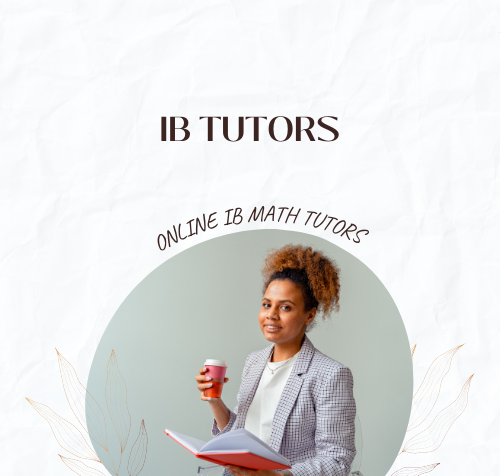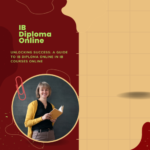Introduction
International Baccalaureate (IB) programs are renowned for their rigorous and comprehensive curriculum, preparing students for success in higher education and beyond. However, navigating the complexities of IB coursework can be challenging, and many students often seek the guidance of expert IB tutors. If you’re considering getting assistance from an IB tutor, this blog will guide you through the process of choosing the right tutor who can cater to your specific needs.
Why Opt for IB Tutoring?
Before delving into the essential steps of choosing an IB tutor, let’s briefly discuss the advantages of IB tutoring:
1. Personalized Attention
IB tutoring offers personalized one-on-one attention, allowing the tutor to focus on your strengths and weaknesses, enabling you to progress at your own pace.
2. Expert Knowledge
IB tutors are well-versed in the IB curriculum and subject-specific requirements, ensuring that you receive accurate and comprehensive guidance.
3. Boosting Confidence
With the support of an experienced IB tutor, you can build confidence in your abilities, leading to improved performance in exams and coursework.
4. Time Management
An IB tutor can help you develop effective study habits and time management skills, crucial for handling the demanding workload of the IB program.
Essential Steps to Choose the Right IB Tutor
1. Identify Your Specific Needs
Before starting your search for an IB tutor, take some time to identify your specific needs and goals. Are you struggling with a particular subject, like math, or do you need assistance with general study strategies? Understanding your requirements will help you find a tutor with the right expertise.
2. Look for Subject Expertise
For subject-specific assistance, such as IB math tutoring, prioritize tutors who have expertise in that particular subject. Look for tutors who have experience teaching IB-level courses and a track record of helping students excel in that subject.
3. Check Qualifications and Experience
Verify the tutor’s qualifications and experience in IB tutoring. Ideally, the tutor should have relevant academic credentials, teaching certifications, and a background in successfully guiding IB students.
4. Read Reviews and Testimonials
Reading reviews and testimonials from previous students or parents can give you valuable insights into the tutor’s teaching style, effectiveness, and overall satisfaction level.
5. Assess Communication Skills
Effective communication between the tutor and the student is essential for productive learning sessions. Look for a tutor who can explain complex concepts in a clear and understandable manner.
6. Consider Online Options
Online IB math tutors and other subject tutors offer flexibility and convenience, allowing you to schedule sessions that fit your busy IB student life.
7. Trial Sessions
Many IB tutors offer trial sessions or consultations. Take advantage of these opportunities to gauge whether the tutor’s teaching style aligns with your learning preferences.
8. Discuss Goals and Expectations
During your initial meetings with potential tutors, discuss your goals and expectations for tutoring. A good tutor will tailor their approach to meet your specific needs.
9. Affordability
While quality tutoring is invaluable, it’s essential to consider your budget when choosing an IB tutor. Look for options that strike a balance between affordability and expertise.
10. Trust Your Instincts
Ultimately, trust your instincts when selecting an IB tutor. Choose someone with whom you feel comfortable, motivated, and confident in their ability to guide you towards success.
Conclusion
Investing in expert IB tutoring can make a significant difference in your academic journey, helping you navigate the challenges of the IB program with confidence and competence. By following the steps outlined in this guide, you can find the right IB tutor who caters to your specific needs, whether it’s for IB math tutoring or any other subject. Remember to prioritize subject expertise, qualifications, and effective communication to ensure a fruitful learning experience.




